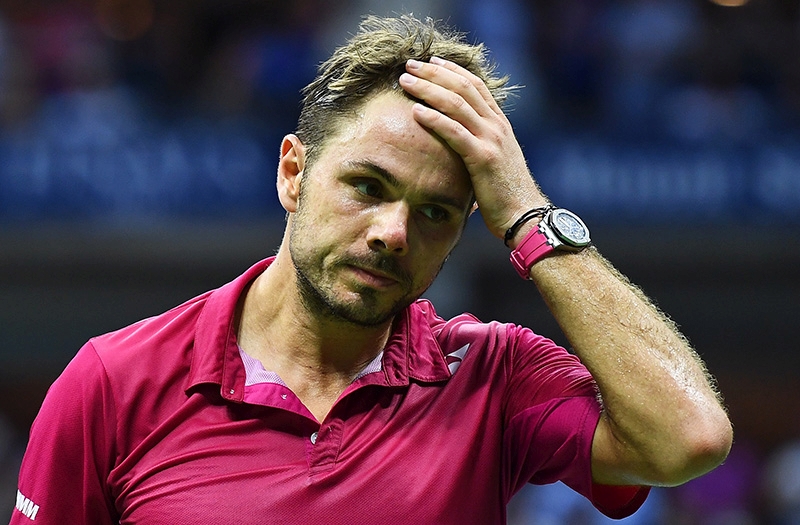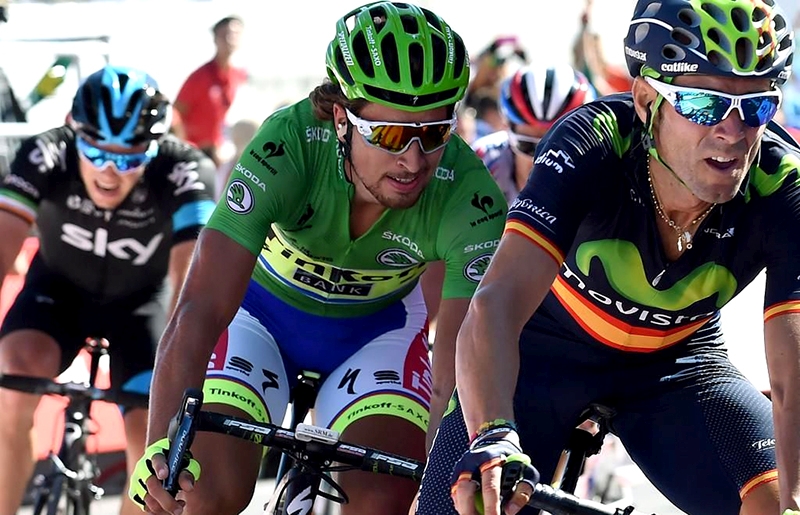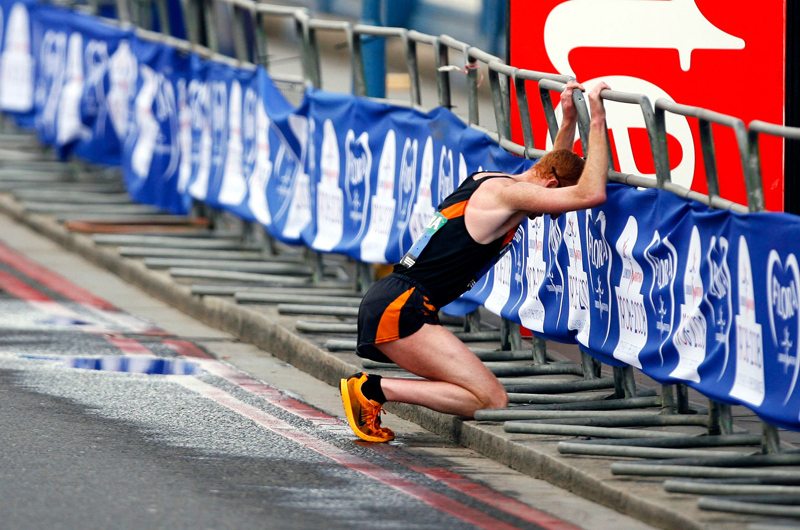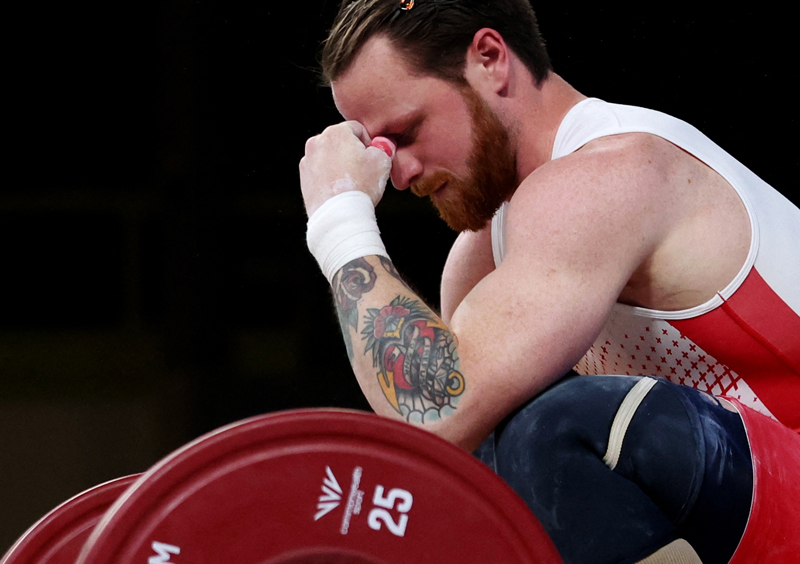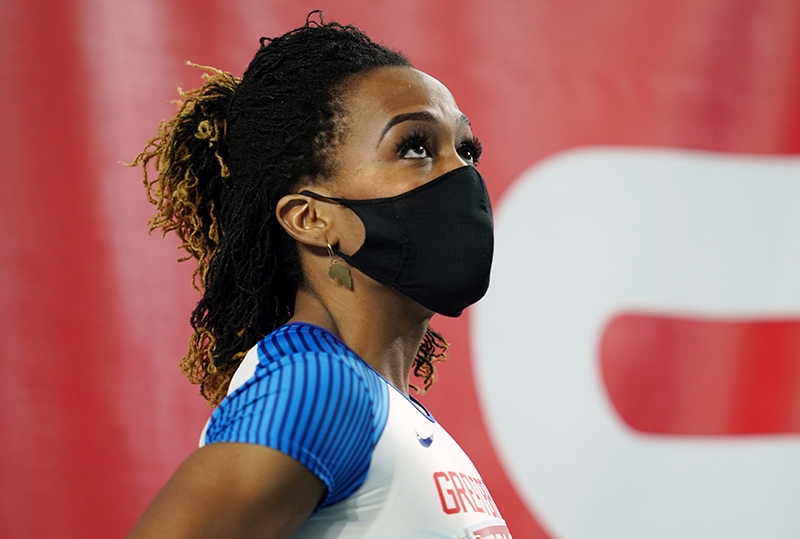You are viewing 1 of your 1 free articles. For unlimited access take a risk-free trial
Post-competition blues: don’t let them get you down!

What are post-competition blues, who is vulnerable and how can they be managed? Dr Carl Bescoby explains
Athletes spend weeks, months, and even years preparing physically, mentally, and emotionally for performance and competition. Often, this intense preparation comes with a level of expectation, commitment, and dedication as athletes give everything to put together their best performances on the day.In their pursuit of performance, athletes are (hopefully) reinforced and encouraged by the support structures around them including their coach, teammates, family, and support staff to invest and dedicate all to their competition. However, when the performance has finished or the competition is over, athletes are often left on their own to adjust to what can be an emotional roller-coaster. It is therefore important to understand what post-completion blues are and how to identify the signs and potential athletes who may be at risk. This is so that support can be in place post-competition to ensure athletes can process these emotional experiences in a constructive way that reduces distress.
What are post-competition blues?
Post-competition blues are characterized as cognitive and emotional responses that are complex(1). The post-competition period is often distressing for many athletes, and they may experience negative emotional responses that can become overwhelming if repressed and left unacknowledged (2).Athletes are often encouraged to develop performance excellence at the expense of developing themselves beyond being an athlete. At an elite level, sport demands prolonged attention and investment; athletes may therefore be left vulnerable to negative emotional experiences after they have reached their target or performed in competition(3). Researchers have found that one causal factor for experiencing low mood following competition is poor adjustment to the ‘void’ of post-competition (4). Athletes whose identity derives mainly from their sport may therefore experience a range of uncomfortable emotions because of this void.
Post-competition blues has often been related to post-performance depression encompassing both the physical decline and psychological loss of purpose leading to negative emotions(5). In particular, post-performance depression is often associated with harsh self-criticism about one’s own performance, and is especially prominent for athletes who experience disappointment with their own accomplishments post-competition.
It is important to acknowledge however that some post-performance depression may be a necessary adjustment process involving both a physical and psychological component, which enables an athlete to recover from the high intensity and stress of performance(5). However, it is also important to recognize that post-performance depression symptoms may also resemble other types of depression. These include physical and mental fatigue, excessive sleep, feeling of emptiness, irritability lack of motivation, negative self-talk, emotional withdrawal, and loss of purpose. By understanding the nature of post-competition blues and post-competition depression, we can identify athletes at risk and how best to support them.
Identifying post-competition blues
Determining how to identify post-competition blues quickly and how they present in athletes provides useful insights, and enables earlier and better support provisions to be put in place. Despite the limited research identifying and acknowledging post-competition blues, it is important to increase awareness and understanding among athletes of what this experience involves and how to identify when an athlete may experience post-competition blues. Increasing ‘mental health literacy’ amongst coaches, support staff, and clinicians can also help to identify athletes at risk of experiencing negative cognitive and emotional responses post-competition(6, 7).Managing post-competition blues
Having outlined what post-competition blues are and how to identify the symptoms, it is paramount to discuss how to manage the emotional drop experienced by athletes after competition(8). One way of managing post-competition blues is through ‘performance decompression’, which is about embracing and making sense of what an athlete has gone through at competition, and then creating the right mindset to move on. This process can be accomplished by the following steps.- Initial debrief - The first step involves an initial debrief post-performance where an athlete can discuss their immediate reaction(s) to their experience. Athletes must be provided an opportunity to conduct an initial debrief with coaches, teammates, support staff, or family.
- Time zero - Following the immediate debrief is the ‘time zero’ stage, which focuses on restorative care. This is where the focus is shifted away from athletic achievement to a more soothing and holistic mindset. During this stage, athletes should be encouraged to live in the moment, enjoying everyday activities with friends and family and hobbies/pastimes that do not revolve around their sport. Directing athletes to reassess or reconnect with these values enables athletes to shift their mindset beyond one of just athletic identity. During this stage, it is also important for athletes to know that it is okay and completely normal to experience a range of emotions.
- Process emotions - The next stage is to make sense of the emotions that surround the performance. During this stage, athletes should explore what happened during competition including the actual facts, the emotions, and the thoughts linked to the performance. To create ‘distance’ between these emotions it is important to ‘name’ these emotions and relive them. In doing so, athletes will be able to come to terms with these emotions, and understand that it is completely normal to experience these kinds of feelings post-competition. Finally, athletes should explore what was particularly challenging in the competition and celebrate the positive components of their performance. In highlighting these strengths, athletes can grow from the experience and build on future performance accomplishments.
- Performance debrief - The final stage is a second performance debrief; by this stage, athletes will have had the opportunity to process and come to terms with the emotions connected to their recent performance or competition. This will enable athletes to analyze their performance objectively and constructively, without any emotional baggage.
Conclusion
Like most people, athletes are primarily emotionally-driven beings, and therefore must take time to process any post-competition negative emotions and feelings in order to be able to come to terms with them. If not, these emotions may re-emerge at times when athletes may not want them to. To do this, athletes should be made aware of the need for performance decompression and support provisions should be put in place to help enable this process.References
- Psych of Sport and Ex. 2018, 37, 67-78
- QRSEH. 2021, 1-18
- Front in Psych. 2016, 7, 1069
- J App. Sport Psych. 2002, 14, 140–153
- Dance Psych for Art and Perf Ex. 2015, 129-132
- J of App Sport Psych. 2021, 33 (1), 45-59
- Psych of Sport and Ex. 2012, 13 (5), 687-692
- The Sport Psych. 2014, 28 (3), 269–278
Related Files
Newsletter Sign Up
Testimonials
Dr. Alexandra Fandetti-Robin, Back & Body Chiropractic
Elspeth Cowell MSCh DpodM SRCh HCPC reg
William Hunter, Nuffield Health
Newsletter Sign Up
Coaches Testimonials
Dr. Alexandra Fandetti-Robin, Back & Body Chiropractic
Elspeth Cowell MSCh DpodM SRCh HCPC reg
William Hunter, Nuffield Health
Keep up with latest sports science research and apply it to maximize performance
Today you have the chance to join a group of athletes, and sports coaches/trainers who all have something special in common...
They use the latest research to improve performance for themselves and their clients - both athletes and sports teams - with help from global specialists in the fields of sports science, sports medicine and sports psychology.
They do this by reading Sports Performance Bulletin, an easy-to-digest but serious-minded journal dedicated to high performance sports. SPB offers a wealth of information and insight into the latest research, in an easily-accessible and understood format, along with a wealth of practical recommendations.
*includes 3 coaching manuals
Get Inspired
All the latest techniques and approaches
Sports Performance Bulletin helps dedicated endurance athletes improve their performance. Sense-checking the latest sports science research, and sourcing evidence and case studies to support findings, Sports Performance Bulletin turns proven insights into easily digestible practical advice. Supporting athletes, coaches and professionals who wish to ensure their guidance and programmes are kept right up to date and based on credible science.

